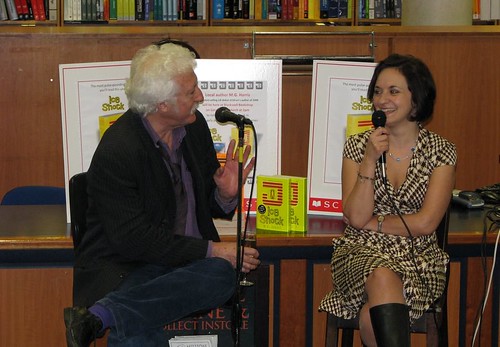First and foremost, here's a warning about
adult content! Don't go deeper if you don't want to!

There are two ways of writing a narrative!
Bold statement indeed. Please follow...
In the first, the writer is not holding anything back. And I don't mean they're avoiding maintaining suspense. I mean, their story is unfolding with a clearly established scene involving a couple of characters who are immediately set in the reader's mind, and whose dialogue / action is clearly visualised and understood.
Now then, there is a second way of writing... and is favoured by some brave souls when opening a story. An opening such as mine - one in which I am attempting to deliver myself whilst being brave but possibly without the nous to pull it off.
This second way involves the development of a feeling of senses or style rather than immediate understanding. It's meant to bring along the narrative but does so in a way that is trying smoothly to deliver an experience instead of simply stating: "Here we are, this is what we're doing".
Still with me?
Okay, imagine this... or rather, read it:
At first Rapunzel was terribly frightened when a man came in, for she had never seen one before; but-
Rapunzel withdrew as the Prince leapt in from the window, forcing the awkward placement of his rapier to the side. His circlet of gold shone in the sun’s heavenly light and yet Rapunzel felt ill at ease from his arrival. The jut of his codpiece was unnatural; unnecessary and distracting. His face lacked, like the Old Witch, all feminine charm. But he might have seemed easy to behold, appealing even, had it not been for the intensity of his gaze; Adam regarding Eve for the first time. What could he want with her? What were his intentions?
-the Prince spoke to her so kindly, and told her at once that his heart had been so touched by her singing, that-
A strange sensation akin to nausea (but not so repulsive) bloomed within...
Here we have the opening of my latest work (after the preface you have already read, of course). In it we have two narratives that relate directly to one another.
- The words from the fairy tale "Rapunzel" - begun mid-story - and pasted exactly as the Brothers Grimm intended. This is a narrator's voice, no?
- My own narration of Rapunzel's meeting with the Prince, after he climbs up her golden tresses.
Is that easy to follow? I'd imagine so.
Now then (this does relate to my previous post on dealing with questions as they arise in the reader's mind, BTW), the narrative swings back and forth between Brothers Grimm and myself for just over a page as the BG narration moves on unfalteringly, but my own narration places Rapunzel and the Prince in bed with each other.
But, I don't want to deal with the reader's question of: Well, why are we having to listen to the BG narrative as well? What's the point.
Because if I did so, it would ruin the effect I'm trying to create - an effect I'm hoping will lead the reader on rather than bore or confuse.
The problem arises that if the reader does become confused, then I, the writer am not controlling the narrative.
This is exaserbated when my narration swaps the third-person pov of Rapunzel and the Prince with the first-person pov of me... okay, well not, me! Per se:
-she put her hand in his and said: “Yes, I will gladly go with you, only how am I to get down out of the tower? Every time you come to see me you must bring a skein of silk with you, and -
He held her down with the heat of his body alone. And she, open to his advance, floated in that ruby sea and drew up its velvet waves in her fists, exclaiming her elation with a hoarse cry that roused the night dwellers of that great wood. Breathless, she could not be fulfilled.
-I will make a ladder of them, and when it is finished I will climb down by it, and you will take me away on your horse.” They arranged that till-
I spread myself beneath him, let him push against me. Felt the heat flushing from me, chest to neck to face, as I cried out. Again! Let him thrust. Take me! I wrapped my legs about his waist, let him deeper.
-the ladder was ready
Forgive me! I write like this under the lame pretense of literary wantonness. :)
So, while I'm lost to my own excesses I'm failing to keep the reader attuned. They get to the change in tense and think: "I've lost it! The narrator hasn't a clue, and neither do I. Why the double narrator? And why the change in tense? Is this a schizophrenic narrator?"
This is made worse when, half a page later, my narrator discusses a whole new scene while the BG narrators continue.
The fact is that literary curlicues and clever tricks require grounding so that the reader feels that they are being led by someone with a map and compass. Not someone who's going to take them through this field, turn about... look at the horizon for a clue about where they're going... you get my point.
So, in controlling my own narrative, the above passage can be changed to:
He held her down with the heat of his body alone. And she, open to his advance, floated in that ruby sea and drew up its velvet waves in her fists, exclaiming her elation with a hoarse cry that roused the night dwellers of that great wood. Breathless, she could not be fulfilled.
-I will make a ladder of them, and when it is finished I will climb down by it, and you will take me away on your horse.” They arranged that till-
I spread myself beneath him, let him push against me.
The two characters entwined atop Rapunzel’s tower were gone. They had suddenly, and without my wishing, escaped my day-dream. Replaced by Holden and myself. My much shorter braid was coiled above my head and the sun-starved body of the Germanic prince was now the chocolate colour of an African-English boy. I tried to hold that moment, tried to ignore Mr Gimli’s droning narrative, or the rest of my English List class who were listening idly along with me.
It felt insalubrious to have such thoughts in public but after the fire of imagination Rapunzel’s story had started within me, I couldn’t help myself. I could see Holden pause above me, pushed up on his arms so that we could regard each other, allowing me to run my palms over his chest. My hands so pale against his dark skin.
He came on again. I felt the heat flushing from me...
Does that make it clearer? As I said, I didn't want to have to break the effect I was creating, but I have a responsibility to the reader. I was going for the effect drawn by movies when a voice over narration continues over changing visuals - but of course, the visuals will speak for themselves. We'd see the characters change from Rapunzel and Prince to... err... "Rapunzel" and Holden.



















